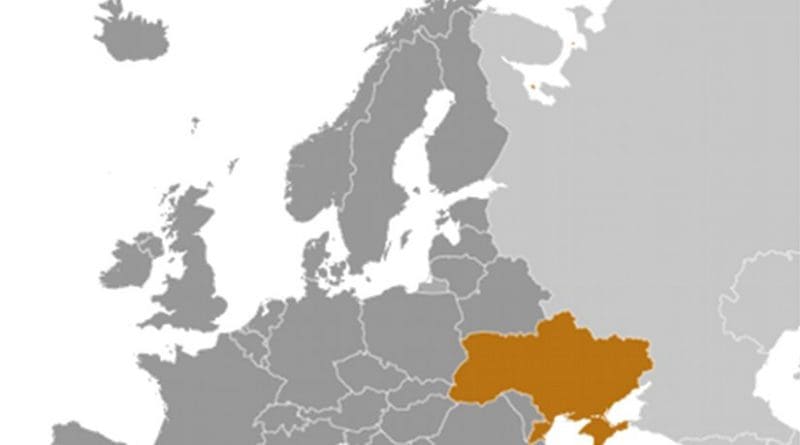Ukraine: EU Foreign Ministers Decide To Wait-And-See On Football Boycott
By RFE RL
(RFE/RL) — The European Union has decided against calling for a blocwide boycott of European soccer championship games scheduled to be held next month in Ukraine.
However, the bloc’s 27 foreign ministers meeting in Brussels agreed to put on ice talks over Ukraine’s deepening political association and economic integration with the EU.
The EU has been critical of Ukraine over the alleged ill-treatment of jailed opposition leader Yulia Tymoshenko, who is serving a seven-year sentence for abuse of office in connection with a gas deal reached with Russia when she was prime minister.
Earlier, while on a visit to the eastern Ukrainian city of Donetsk, President Viktor Yanukovych had responded angrily to the possibility of an EU boycott saying “it’s very important that we not be humiliated.”
EU foreign-affairs chief Catherine Ashton said in Brussels that the EU had been “very consistent in sending messages to Ukraine about the importance of justice being done.”
Several European leaders have already vowed to boycott Ukraine during Euro 2012, which Ukraine is hosting jointly with Poland, after Tymoshenko said she was beaten by prison officials last month and launched a hunger strike.
No formal decision on a blocwide boycott was expected at the May 14 gathering.
Reports say ministers were instead likely to agree to monitor the situation, with an eye toward sending a unified message to Ukraine closer to the tournament, which starts on June 8.
Open Question
Ministers remained evasive about the possibility of a boycott ahead of the meeting.
“I am not talking about a boycott,” said Dutch Foreign Minister Uri Rosenthal, whose government has threatened to snub the matches played in Ukraine.
“I am just talking about the Ukraine government, which has still has time to do what is needed and that is to show a visible improvement of the situation for Madame Tymoshenko,” he added.
British Foreign Secretary William Hague said ministerial attendance at the tournament was being “kept under review.”
Danish Foreign Minister Villy Sovndal said the decision would be made “in the end, and not now.”
While some EU members favor a boycott, others want to use their potential attendance as a bargaining chip with Ukraine.
Policy Tool?
Some EU foreign ministers, like Sweden’s Carl Bildt, have also played down the political acceptability of a boycott.
“I must frankly say that I fail to see that attendance or nonattendance at football games is the main instrument of European policy,” Bildt said. “I think we have far stronger instruments of policy, and I think we should deploy those.”
He added: “At the end of the day, it is up to the leaders of Ukraine to decide if they want to take their country in the direction of Poland or in the direction of Belarus. And that has consequences, that particular choice. If they want to go the European road, there are enormous benefits to the society of Ukraine. If they want to take the country to Belarus, well, they will go to Belarus.”
Piling On
Tymoshenko, 51, was jailed in October for abuse of office in connection with a gas deal with Russia reached when she was prime minister — a charge she denies.
Her trial was denounced by the European Union and the United States, as well as by numerous rights groups in Ukraine and abroad, as politically motivated.
Ukrainian authorities deny she has been ill-treated in prison.
A new criminal trial on unrelated tax charges began against Tymoshenko in early April.
Tymoshenko and her supporters accuse Yanukovych — whose 2004 bid for the presidency was scuppered by the Orange Revolution that Tymoshenko helped lead but who completed a political comeback by defeating Tymoshenko in a 2010 presidential runoff — of political persecution.
Lithuania’s president recently visited Tymoshenko after the former prime minister halted her hunger strike when she was transferred to a hospital facility in Kharkiv.

